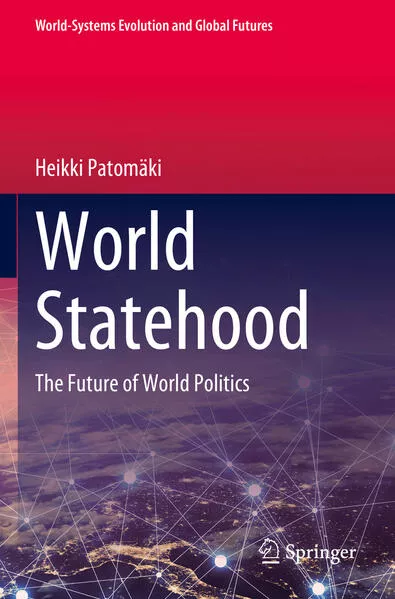
- Publikationen ca: 3
- Fragen & Antworten
Heikki Patomäki
Heikki Patomäki is a Professor of World Politics at the University of Helsinki, Finland. Previously, he was a Full Professor at the Nottingham Trent University, United Kingdom (1998-2003); at the RMIT University in Melbourne, Australia (2007-10); and a Visiting Professor at the Ritsumeikan University in Kyoto, Japan (2012). Additionally, he is a member of the Finnish Academy of Sciences and Letters (2018-) and a Life Member of Clare Hall at the University of Cambridge, United Kingdom. He is also a founding member of the Helsinki Centre for Global Political Economy (Helsinki-GPE) which was established in April 2020 and Vice Chair of the EuroMemo network for 2021-23.
World Statehood
Developing a processual understanding of world statehood, this book combines history, political philosophy, explanatory social science, and critical-reflexive futures studies. While doing so, it poses essential questions about world political integration, especially (i) whether and to what degree elements of world statehood exist today, (ii) whether the development of further elements of world statehood in some stronger sense can be seen as a tendential direction of history, and (iii) whether, and under what conditions, a world state could be viable?The book is organised into three parts.
World Statehood
Developing a processual understanding of world statehood, this book combines history, political philosophy, explanatory social science, and critical-reflexive futures studies. While doing so, it poses essential questions about world political integration, especially (i) whether and to what degree elements of world statehood exist today, (ii) whether the development of further elements of world statehood in some stronger sense can be seen as a tendential direction of history, and (iii) whether, and under what conditions, a world state could be viable?The book is organised into three parts.
World Statehood
Developing a processual understanding of world statehood, this book combines history, political philosophy, explanatory social science, and critical-reflexive futures studies. While doing so, it poses essential questions about world political integration, especially (i) whether and to what degree elements of world statehood exist today, (ii) whether the development of further elements of world statehood in some stronger sense can be seen as a tendential direction of history, and (iii) whether, and under what conditions, a world state could be viable?The book is organised into three parts.


